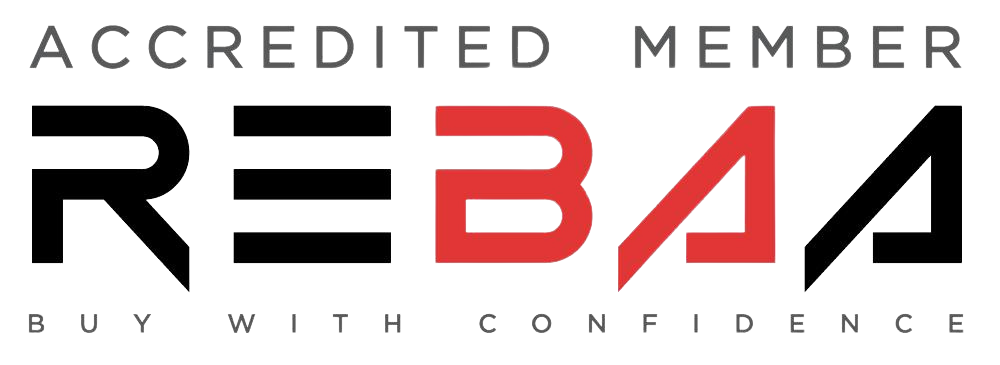This week I’d like to share some tips and tricks you can use when making your home inspections to see if that property is going to be well suited to you, and free of costly problems down the track.
Start by familiarising yourself with the floor plan and understanding the property orientation, even before you head off to the inspection.
Orientation means what parts of the property are facing North, East, South, and West. Now generally speaking here in Sydney the preferred orientation for a home is to have the living area to face North, East, or somewhere between those two compass points. Living areas generally include lounge, kitchen, garden, balcony, or courtyard.
Why is this so? Humans are phototropic. We are drawn to sunlight and if these areas face North or East they will get all day, or at least morning sunshine.
Most of us also prefer morning sun to afternoon sun because it isn’t as harsh.
It’s also generally preferable to have the bedrooms oriented to the South side of the property. Most people are only in their bedrooms after dark, so natural light doesn’t matter. Also, a West-facing bedroom may bake in the afternoon sun and be too warm to sleep in without air conditioning.
Now the above doesn’t take into consideration views and landmarks. For example, Bondi Beach is a South facing beach, so if you were buying in North Bondi and wanted beach views, you would prefer a living area with a Southerly orientation.
Insider tip: Taking note of the inspection time will also give you an indication of when the home gets favourable light. 2 pm inspection? You can bet the home looks best in the afternoon.
If a floorplan doesn’t look like an ideal orientation you may be able to change it inexpensively so rather than dismiss a property because of an awkward floorplan, consider whether moving or removing walls will really improve light and flow. Maybe a skylight or two can add light. It may even be worth bringing a builder with you to assess how difficult or expensive works may be.
Aspect and light are big considerations because they directly affect your day to day enjoyment of your home.
Just as important to consider is moisture and really what I’m talking about here is damp. Damp can be caused by water coming in from above (ingress), or below or from insufficient ventilation.
If the damp is rising from below it may be the home is located in a damp location, with underground water and poor drainage. This is something you need to know because damp will likely be a consideration for the lifetime of your home ownership.
When inspecting look for bubbling paint, or if the property is freshly painted check inside wardrobes where the painter missed. Your sense of smell gives clues too. Damp has an earthy smell, like mushrooms, or wet wood. Again although most damp issues can be resolved you need to know how serious the issue is. Damp leads to mould and that will lead to health problems. It’s worth checking flood maps and council records for flood-prone areas. Particular streets in a suburb can be more prone to flooding than others. For example, Double Bay is built on a swamp, and Paddington is built on a limestone ridge that drains water downhill from Oxford st to Rushcutters Bay. Many homes in these two suburbs are prone to damp issues.
Beyond the physical inspection checking the contract for encumbrances is something you can do yourself early on in the process to avoid disappointment. A sewer line across the property may mean no inground pool later down the track, or maybe a part of the front of the property is claimable by council to add parking or widen a road. A quick flip through the sales contract which is on display at every open home can reveal this information- usually in the last ten pages or so. You’ll also find other relevant info such as whether the property is heritage listed, or affected by other issues such as soil contamination.
Now that you have thought about the more immediate issues directly related to the home and the land it is on, it is time to turn your attention to neighbouring homes. What impact will the development of their property may have on the property you’re considering? Losing a view, or sunlight may be a dealbreaker for you and it’s safest to assume if a neighbour hasn’t already built up it will happen at some time in the future.
When you conduct your home inspection rather than just inspecting the property, consider the entire immediate area. You can do this by walking both sides of the street, paying attention to as many features as possible. Are neighbours renovating? Are homes mostly well kept? Whats street parking like? How far is the local bus stop? Is the street a throughway for vehicles looking to avoid main st traffic? Walking the street and the vicinity at different times of day will reveal a lot about the desirability of the area.
The above isn’t an exhaustive list of all the things you can do to be thorough with your home inspections but they are my most important inspection tips which are going to help you to be more alert and aware when considering any property to purchase.
Every home purchase has its pluses and minuses, in fact, there is no such thing as the ‘perfect’ property. Knowing what’s a dealbreaker for you, or what you’re prepared to live with, will help you to be more confident in your search and appraisal process.
If you have any further questions about the above or any house hunting matter please do get in touch I’d love to hear from you.




